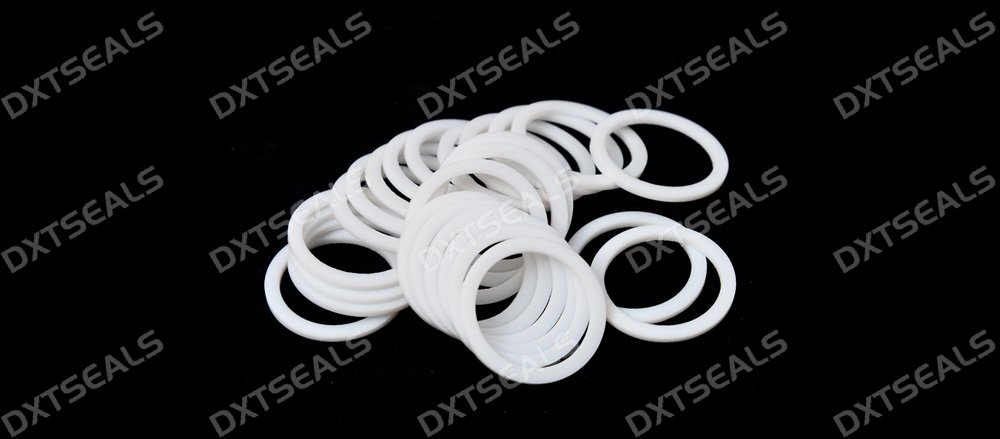
Plastic washers are essential components in many industries, particularly in the field of electrical engineering. Their insulating properties make them indispensable for ensuring safety, preventing electrical interference, and protecting sensitive components. This article explores the insulation characteristics of plastic washers, their material advantages, and their diverse applications in electrical equipment.
What Makes Plastic Washers Ideal for Electrical Applications?
Plastic washers stand out in electrical applications due to their unique combination of properties:
1. Excellent Electrical Insulation
- Low Conductivity: Plastic washers are made from non-conductive materials, making them ideal for preventing electrical current from passing between components.
- Dielectric Strength: They provide high resistance to electrical breakdown, ensuring safe operation even under high voltages.
2. High Thermal Resistance
- Many plastic washers are engineered to withstand elevated temperatures, making them suitable for use in equipment that generates heat.
- Materials like polycarbonate and polyimide exhibit excellent thermal stability.
3. Corrosion and Moisture Resistance
- Unlike metal washers, plastic washers are resistant to rust and degradation from moisture, which is crucial in environments prone to humidity.
4. Lightweight and Flexible Design
- The lightweight nature of plastic reduces the overall weight of electrical assemblies, contributing to energy efficiency.
- Flexibility allows for easier installation and better adaptability to component designs.
5. Vibration Dampening
- Plastic washers help absorb vibrations, protecting electrical components from mechanical stress and potential damage.
Materials Commonly Used for Insulating Plastic Washers
Different plastic materials are used to manufacture washers based on specific application requirements:
1. Nylon
- Features: Excellent insulation, high strength, and low moisture absorption.
- Applications: Commonly used in household appliances, circuit boards, and industrial machinery.
2. Polycarbonate (PC)
- Features: High dielectric strength, heat resistance, and transparency.
- Applications: Ideal for high-voltage electrical systems and lighting fixtures.
3. Teflon (PTFE)
- Features: Exceptional heat resistance, chemical inertness, and low friction.
- Applications: Used in high-temperature and chemically aggressive environments, such as industrial electronics.
4. Polyimide (PI)
- Features: Superior thermal resistance and dielectric properties.
- Applications: Perfect for aerospace and high-performance electrical applications.
5. Polyethylene (PE)
- Features: Lightweight, cost-effective, and good insulation.
- Applications: Used in consumer electronics and small electrical devices.
6. PVC (Polyvinyl Chloride)
- Features: Flame resistance and good electrical properties.
- Applications: Often used in low-cost electrical devices and insulation systems.
Applications of Plastic Washers in Electrical Equipment
Plastic washers play a critical role in the design and operation of various electrical devices and systems. Key applications include:
1. Circuit Boards and Electronics
- Prevent short circuits by insulating screws and other fasteners from conductive surfaces.
- Protect sensitive components from electrical interference.
2. Transformers and Power Supplies
- Provide insulation between high-voltage components to prevent arcing and improve safety.
3. Electrical Enclosures
- Seal and insulate connections in junction boxes, switch panels, and control cabinets.
4. Motors and Generators
- Insulate mounting bolts and reduce vibration to enhance the lifespan of components.
5. Appliances and Consumer Electronics
- Ensure safe and efficient operation by providing insulation in household devices like microwaves, refrigerators, and air conditioners.
6. Renewable Energy Systems
- Used in solar panels and wind turbines to prevent grounding issues and enhance system reliability.
Advantages of Using Plastic Washers in Electrical Applications
Plastic washers offer numerous benefits over traditional metal washers in electrical settings:
- Enhanced Safety: By preventing electrical conduction, plastic washers minimize the risk of short circuits and electrical shocks.
- Longevity: Resistance to corrosion and wear ensures a longer service life in various environments.
- Customization: Plastic washers can be manufactured in different shapes, sizes, and materials to meet specific application needs.
- Cost-Effectiveness: Plastic is often more affordable than metal, especially for mass production.
- Eco-Friendliness: Many modern plastics are recyclable, supporting sustainable manufacturing practices.
How to Choose the Right Plastic Washer for Your Needs
Selecting the right plastic washer depends on several factors:
1. Voltage Requirements
- Choose materials with high dielectric strength for high-voltage applications.
2. Operating Environment
- Consider factors like temperature, humidity, and exposure to chemicals or UV light.
3. Load-Bearing Capacity
- Ensure the washer material can withstand the mechanical stress of the application.
4. Size and Thickness
- Select dimensions that fit seamlessly into the design of the equipment.
5. Regulatory Compliance
- Verify that the material meets industry standards for safety and performance, such as UL ratings or RoHS compliance.
Conclusion
Plastic washers are invaluable in the electrical industry, providing essential insulation and protection for a wide range of applications. Their unique properties, including electrical resistance, thermal stability, and lightweight design, make them a superior choice for ensuring the safety and reliability of electrical equipment.
By selecting the right material and design, engineers and manufacturers can optimize performance while reducing costs and enhancing the longevity of their systems. Whether for circuit boards, motors, or renewable energy systems, plastic washers are a key component in modern electrical solutions.
For high-quality plastic washers tailored to your specific needs, consult an experienced manufacturer to ensure optimal performance and compliance with industry standards.
